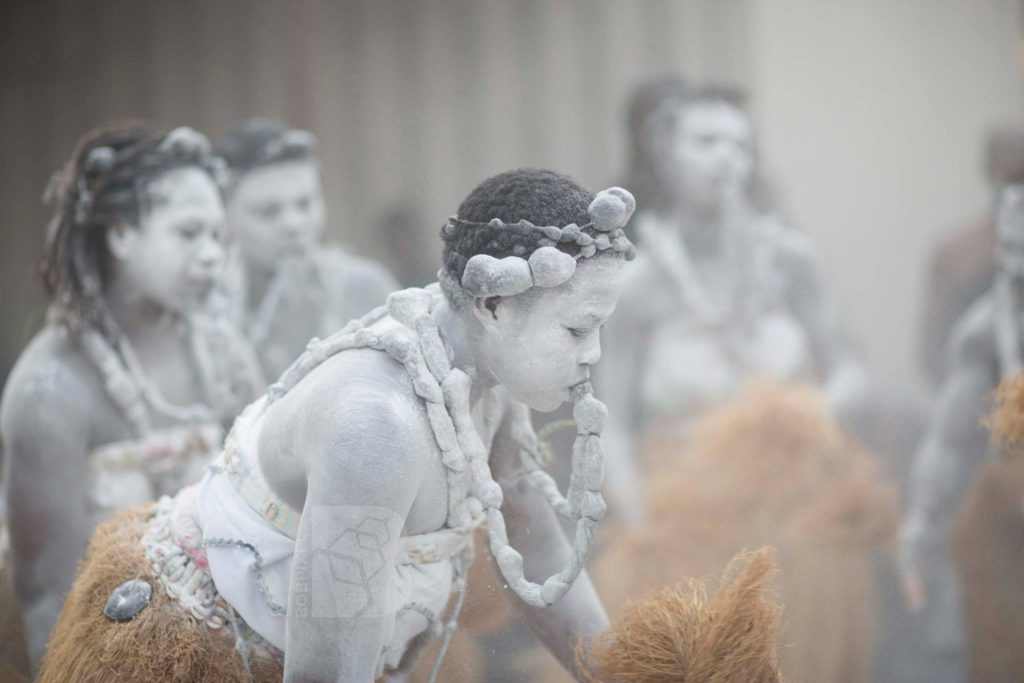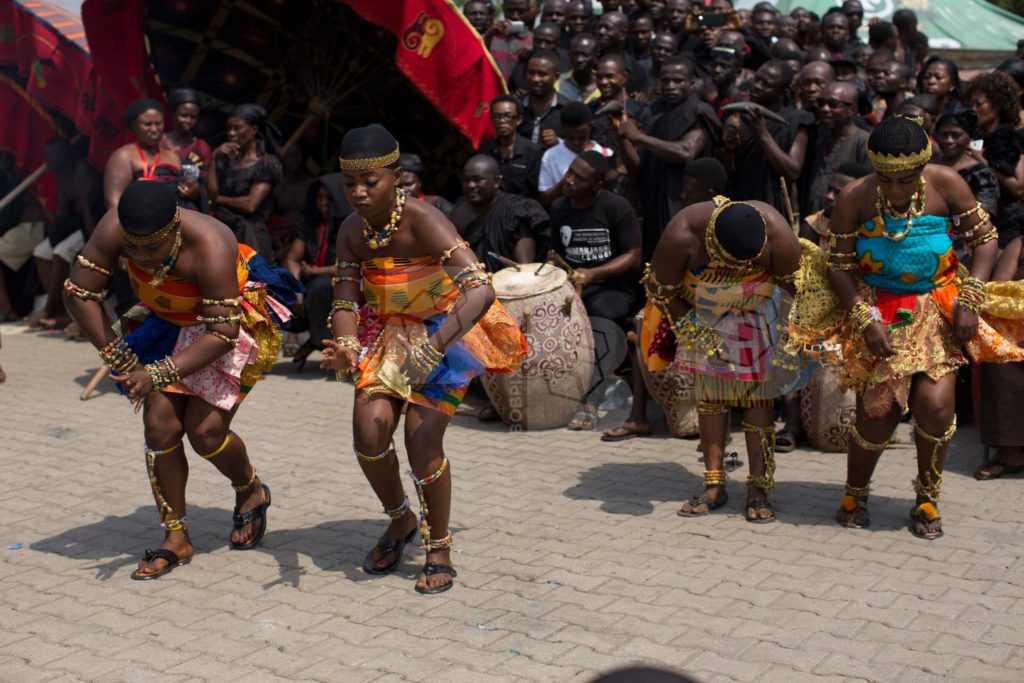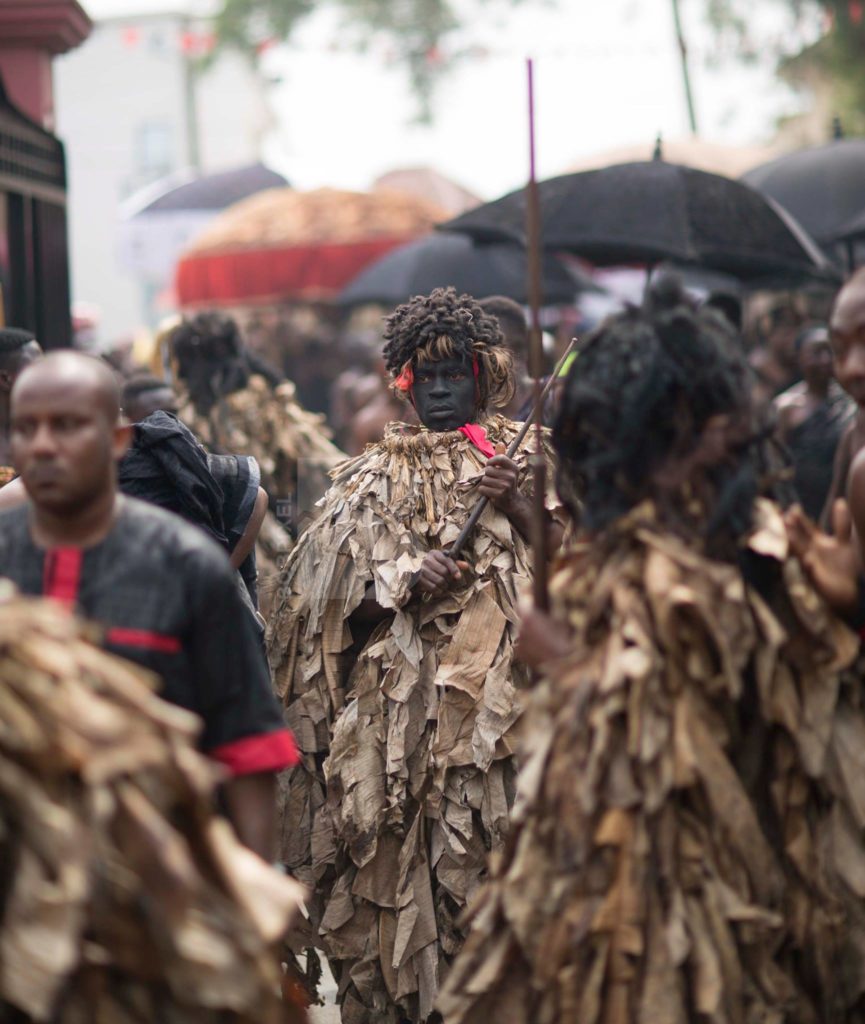Last week, Asanteman came to a standstill. And many of the people who matter in the affairs of our republic were there to pay their homage. The occasion? The mother of the Asantehene, Otumfuo Osei Tutu II, and Queen Mother of the Asante Kingdom, Nana Afia Serwaa Kobi Ampem II, had passed and she was being buried.
She died in November 2016 at the age of 111 years. She was enstooled in 1977 as the 13th Queen Mother of the Asante Kingdom since 1695. She succeeded the late Nana Ama Serwaa Nyarko II, who reigned from 1945 to 1977, and reigned for 39 years. In the Asante Kingdom, the Queen Mother plays an important role as the kingmaker and so the importance attached to her funeral was understandable.
Being one of the Ghanaian ethnic groups which still hold their traditions highly, Asanteman came alive with sights that only few are lucky to see once in their life times. Social media was awash with photographs of mostly executioners and traditional priests of various ages, gender, sizes and levels of seriousness, and the most popular phrase in the captions that accompanied the photographs was “rich culture.” In Ghana, this is a perennial phrase one hears when there is a traditional festival or a big funeral such as the Asantehemaa’s. Having followed such posts last week, I posted the following message on my Facebook wall:
“When you say a culture is rich, what exactly do you mean? Is culture a way of life of a people or what the people do when someone prominent dies? What is culture? How do people manifest their culture? How does the culture of a people help in their wellbeing? Is culture about reminding the current generation of antiquated images of the stone age? What is culture? What are the elements of a rich culture? Is culture not supposed to be the values and activities that define our daily lives? What is culture? Is it about the show of black magic and the ascription of meanings to what people do on festive occasions?
“What is the culture of a corrupt people? What is the culture of a greedy people? What is the culture of a people who live in filth? What is the culture of a people who have no regard for the collective interest of the society? What is the culture of a people who have lost the taste for their own foods and everything produced in their country? What is the culture of a people whose traditional music is only played during festive seasons or at the funerals of an important person? Is culture like the Christmas dress of old, to be worn occasionally? Ghanaians, when we say our culture is rich, what do we mean?”

Social media was awash with Photos of traditional priests at the funeral. Photo credit: Emmanuel Bobbie of BobPixels
The reactions that followed this post were varied, but the majority of them were comments from people who interpreted the posts to mean an attack on Asanteman and vented their spleens in the strongest terms possible. Others accused me of being one of the people who have been brainwashed by the white man’s education to the extent that they do not appreciate the culture of their people. Some sick heads, however, said the writer was suffering from an inferiority complex. How ridiculous!
There is nothing wrong with disagreeing with someone’s opinion and expressing that strongly. But there is everything wrong with not understanding the meaning of what has been written and going ahead to attack the writer.
I have not been brainwashed by the white man’s education. I am one Ghanaian who is a strong believer in the culture and traditions of our people, except those that are inimical to our growth and infringe on the human rights of others. I appreciate the diversity of culture. I was born in Bongo in the Upper East but grew up in Kete-Krachi in the Northern part of the Volta Region, where Twi (and not Guan) is the lingua franca of the people there. I speak Gurune (what some call Frafra), Twi, Ewe, Fante, Kaakye (Guan) and I hope master Nzema soon. Years ago, my government declared Friday as the day we should wear African prints but I think it doesn’t make sense not to patronise my own apparel so I wear African print everyday of the week, including my wedding day. Apart from Ghanaian gospel, my main music is traditional, especially borborbor.
I admire Asantes and the pride they take in their culture, especially the names they give to their children. I don’t like Ghanaian names such as Mirinda Greenstreet, names that leave you wondering about the nationality of the person. The most romantic name I have heard under the sun is “Serwaa.” I hope after reading this piece, Maame Efua will understand that I had a serious crush on that name (not a person) from my infancy before I married her. And I know that understanding will come after I answer at least 29 questions and promise to keep any “Serwaa” at an arm’s length.
So my post was not an attack on Asanteman. It was not ridiculing our culture either. I was just expressing my disappointment in how we make culture an event, instead of an everyday thing. In the Primary School, I learnt that culture is the way a group of people lives – what they eat, how they dress, how they marry and perform the other rites of passage etc.
When I was watching the inauguration of President Nana Addo Dankwa Akufo-Addo on television with my wife, the camera caught a woman and we exclaimed together, “This must be the South African Ambassador!” Why did we guess so? It was because of what she wore. When Nigerian politicians appear on the floor of the UN General Assembly, you can almost always guess their nationality rightly by what they wear. Though they have many ethnic groups, they seem to have a national identity.
On a cold morning in September 2012, while I was walking from the Ashanti Hotel in Johannesburg to the office of The Star newspaper, where I was doing my internship, a man ran from a shop towards me asking, “Ghana? Ghana?” He told me with a broad smile that he had visited Ghana and had purchased a smock so when he saw me wearing one, he knew I was a Ghanaian. We exchanged pleasantries and I left.
So my point was simple. The definition of culture should not be a grotesque looking man bathed in ashes and charcoal and wearing leaves or raffia palm. That is not how we live. Culture should not be limited to traditional ceremonies. Our culture should not be perennial. Our culture should identify us. Unfortunately, we are losing our identity.
In 1995, Indians decided to rename their capital city, Mumbai, instead of the Bombay their colonial masters called it. We are still happy to refer to Asante people as Ashantis. We refer to Bono Ahafo as Brong Ahafo and the President recently said one of his nominees spoke Dagaati, when there is no language or ethnic group in Ghana called Dagaati. My dog-eating slaves in the Upper West Region (we are playmates) are called Dagaaba (singular Dagao) and their language is Dagaare. My Gurune language is being called Frafra and the Kaakye people have accepted Krachi as their ethnic group and language.
The title of the Queen of England is Her Majesty. And the title of the King of the Asante people is Otumfuo, but these days we hear Asantehene being addressed as “His Majesty” even at formal occasions where he is in attendance, and no one protests. Maybe we don’t know the meaning of Otumfuo so we think adding “His Majesty” to it makes him adequate and powerful enough.
Our infatuation with foreign goods and foods can only be compared to witchcraft. During traditional marriages some grooms are specifically directed to buy wax print made in Holland, not Ghana. Even our gods now prefer European schnapps to Ghanaian schnapps, pito, palm wine or the almighty “akpeteshie.”

Some Traditional Dancers. Photo credit: Emmanuel Bobbie of BobPixels
Culture is not only expressed in material things but also the values that define our daily lives. When an unemployed young woman from Kwahu and another from Tamale arrive in Accra on the same bus, you will later find the Kwahu girl selling something along the streets for herself while the girl from Tamale will be shop attendant for someone. Asantes, Kwahus and some Akans are known to be commercially minded people. The Akwapem people are known to be very respectful. And until recently when some crooks in politics, public service and commerce soiled our name, the people from Northern Ghana were generally known to be loyal and honest. These are the values we should go back to when we pride ourselves in rich culture.
Our values are eroding. We are no longer the honest and selfless people who seek the communal welfare of our society. Greed is sinking our nation. Corruption is ruining us. Dishonesty has become a common feature in our interpersonal engagements. So where is our rich culture?
When we do all of these and turn around to praise ourselves that we have a rich culture, we may be missing the point about what the true meaning of culture really is. Culture is not only about drumming and dancing and the display of ancient magical powers of traditional priests and warriors. Culture should not be about the antiquated elements and sights we showcase to curious Western tourists, some of whom still think Africans live on trees and in caves and do not wear modern clothes.
Our culture should give us a sense of pride in ourselves. And our tongues should be accustomed to what we produce. In 2013, I spent three weeks in Germany and the rice I ate in hotels in Hamburg and Cologne and in all the places I visited was the most “disorganized” rice I have seen in all my life. The rice is not polished. It is not perfumed. The rice produced in Ghana tastes better and looks more presentable when served than the ones I saw in Germany. But they eat their own rice, while we reject ours and import from America and Asia.
When we develop a culture of appreciating and patronizing what we have, we will stop being miserable beggars. When we eat Ghana and Wear Ghana, we will create jobs and build industries. We will live dignified lives and give meaning to our rich cultural heritage. After all, culture is how a people live, and we don’t live on empty stomachs or walk naked. That’s where we should start our rich culture from, and not wait until a Queen mother dies, or a king is installed.

Scenes and sights from the Asantehemaa’s funeral
The writer, Manasseh Azure Awuni is a Broadcast Journalist with Joy 99.7 FM. His email address is azureachebe2@yahoo.com
